View all filters
Clear
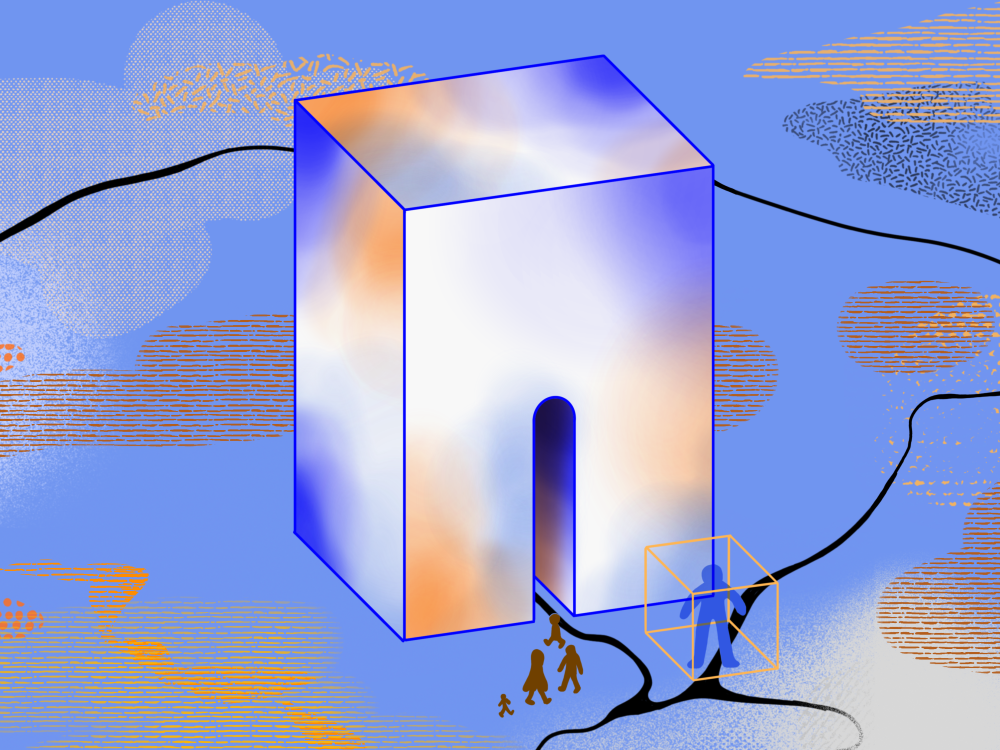
Alone With the World
Portraits of the struggle to find belonging in a world that feels unfairly unfamiliar
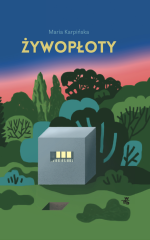
Žive ograde
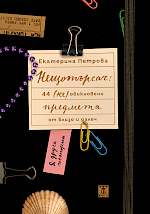
Poszukiwaczka rzeczy: 44 (nie)zwyczajnе przedmioty z bliska i z daleka
Tak jak sugeruje podtytuł, książka Poszukiwaczka rzeczy przedstawia historie 44 przedmiotów z bliska i z daleka. W środku znajdziemy zaskakujące, różnorodne i uporządkowane tematycznie znaleziska z całego świata: buty z Bhutanu, płytki chodnikowe z Barcelony według projektu Gaudiego, szklanki do wina z kraju Basków, broszkę w kształcie serca z Sarajewa, espadryle z Pirenejów, skarabeusze ze Starożytnego Egiptu, pudełko ze śmieciami z Nowego Jorku, kawałek pomarańczowego materiału „Dryfujących pomostów” z jeziora Iseo, słoweńskiego dzwoniącego smoka, mapę Wschodniego Berlina i wiele innych. Opowiadając historie konkretnych przedmiotów, Ekaterina Petrowa w rzeczywistości opowiada o miejscach, z których one pochodzą – o Küstendorfie i Katmandu, o Lublanie i Luizjanie, o Belwederze i Bilbao, o Selçuku i Central Parku – jednocześnie umieszcza je w szerszym językowym, kulturowym, historycznym, antropologicznym i geograficznym kontekście. Teksty są pomysłową mieszanką dzienników podróży, esejów i opowiadań, uważnie przeanalizowane i poprzetykane ciekawostkami, ale przełamane subiektywnym spojrzeniem autorki, jak i jej osobistą biografią podróżniczki, tłumaczki i poszukiwaczki rzeczy. Artystycznie skomponowana przez Ljubę Chalewą, jedną z najsłynniejszych bułgarskich ilustratorek, szata graficzna książki w cudowny i pełen poczucia humoru sposób oddaje ducha i nastrój historii. Dzięki temu sama książka również staje się pięknym i niosącym przyjemność przedmiotem – do czytania i powracania, do posiadania i obdarowywania.
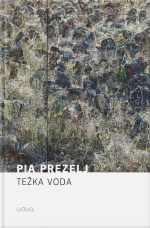
Těžká voda
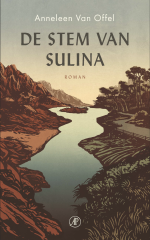
Sulinin glas
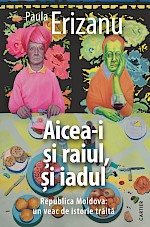
Oh, ragazze (It’s Both Heaven and Hell Here. Moldova: a Century of Lived History)

Sulinin glas

Encuentracosas: 44 objetos (in)usuales de cerca y lejos
Como sugiere su subtítulo, el libro Encuentracosas contiene historias sobre 44 objetos de cerca y lejos. La curiosa y variada selección, ordenada temáticamente, incluye sorprendentes hallazgos de todo el mundo: Botas de Bután, losetas de Barcelona diseñadas por Gaudí, copas de vino del País Vasco, un broche en forma de corazón de Sarajevo, alpargatas de los Pirineos, escarabajos del antiguo Egipto, un cubo de basura de Nueva York, un trozo de tela naranja de los muelles flotantes del lago Iseo, una campana de dragón eslovena, un mapa de Berlín del Este y mucho más. Al narrar las historias de estos objetos concretos, Ekaterina Petrova cuenta en realidad las historias de los lugares de los que proceden —Kustendorf y Katmandú, Liubliana y Luisiana, Belvedere y Bilbao, Selcuk y Central Park—, situándolos al mismo tiempo en un contexto lingüístico, cultural, histórico, antropológico o geográfico más amplio. Los textos, una ingeniosa mezcla entre cuaderno de viaje, ensayo y relato corto, están cuidadosamente elaborados y repletos de curiosidades, pero refractados a través de la perspectiva subjetiva de la autora, así como de su biografía personal como viajera, traductora y encuentracosas. La maquetación del libro, realizada con el ojo estético de Lyuba Haleva, una de las ilustradoras búlgaras contemporáneas más destacadas, capta de forma espléndida y humorística el espíritu y el carácter de los relatos. De esta forma, el propio libro se convierte en un objeto bello, placentero y alegre, para leer y releer; un libro que poseer y regalar.

Garduri vii

Хей, момичета (It’s Both Heaven and Hell Here. Moldova: a Century of Lived History)
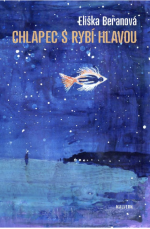
Хлопець з риб’ячою головою

Apă grea

De jongen met het vissenhoofd

La voz de Sulina

Căutător-de-chestii: 44 de obiecte (ne)obișnuite de aproape și de departe
După cum sugerează subtitlul, cartea Căutător-de-chestii conține povești despre 44 de obiecte de aproape și de departe. Selecția neobișnuită și variată, aranjată tematic, include descoperiri surprinzătoare din întreaga lume: cizme din Bhutan, dale de trotuar din Barcelona proiectate de Gaudi, pahare de vin din Țara Bascilor, o broșă în formă de inimă din Sarajevo, espadrile din Pirinei, scarabei din Egiptul antic, o cutie cu gunoi din New York, o bucată de țesătură portocalie din „cheiurile plutitoare” ale lacului Iseo, un dragon zornăitor din Slovenia, o hartă a Berlinului de Est și multe altele. Spunând poveștile acestor obiecte, Ekaterina Petrova spune, de fapt, și poveștile locurilor din care provin - Kustendorf și Kathmandu, Ljubljana și Louisiana, Belvedere și Bilbao, Selcuk și Central Park - plasându-le în același timp într-un context lingvistic, cultural, istoric, antropologic sau geografic mai larg. Amestec inventiv de jurnal de călătorie, eseu și povestire, textele sunt atent documentate și înțesate de curiozități, dar fragmentate din perspectiva subiectivă a autoarei, precum și prin biografia sa personală de călător, traducător și căutător-de-chestii. Realizată artistic prin ochiul estetic al Lyubei Haleva, una dintre cele mai remarcabile ilustratoare contemporane din Bulgaria, ilustrația cărții surprinde în mod minunat și plin de umor natura și starea de spirit ale povestirilor. În acest fel, cartea în sine devine, de asemenea, un obiect frumos, plăcut și vesel - de citit și recitit, de avut și de dăruit.

Głos Suliny

De Heggen
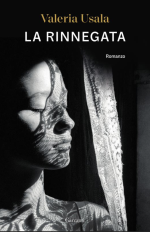
Odpadlice

Iskar: 44 (ne)navadnih predmetov od blizu in daleč
Kot namiguje podnaslov, knjiga Iskar vsebuje zgodbe o 44 predmetih od blizu in daleč. Radovedna in raznolika zbirka, urejena po tematikah, vključuje presenetljive najdbe z vsega sveta: škornje iz Butana, tlakovce z Gaudijevim vzorcem iz Barcelone, kozarce za vino iz Baskije, broško v obliki srca iz Sarajeva, espadrile iz Pirenejev, skarabeje iz starega Egipta, škatlo smeti iz New Yorka, kos oranžne tkanine s plavajočih pomolov na jezeru Iseo, slovenskega rjovečega zmaja, zemljevid vzhodnega Berlina in še mnogo več.
Ko Ekaterina Petrova pripoveduje zgodbe o teh predmetih, pravzaprav pripoveduje tudi o krajih, od koder prihajajo – Kustendorf in Katmandu, Ljubljana in Louisiana, Belvedere in Bilbao, Selçuk in Centralni park –, ter jih umešča v širši jezikovni, kulturni, zgodovinski, antropološki ali geografski kontekst. Umetelna mešanica potopisov, esejev in zgodb je skrbno raziskana in podkrepljena z zanimivimi dejstvi, vendar prežeta s subjektivnim pogledom avtorice in njeno osebno biografijo popotnice, prevajalke in iskarke.
Oblikovanje in podoba knjige, ki jo je ustvarila Ljuba Haleva, ena najvidnejših sodobnih bolgarskih ilustratork, dobro in s smislom za humor pričara duh zgodb. Tako tudi sama knjiga postane čudovit predmet, ki prinaša užitek in veselje – za branje in ponovno branje, za posedovanje in obdarovanje.

Тежка вода
